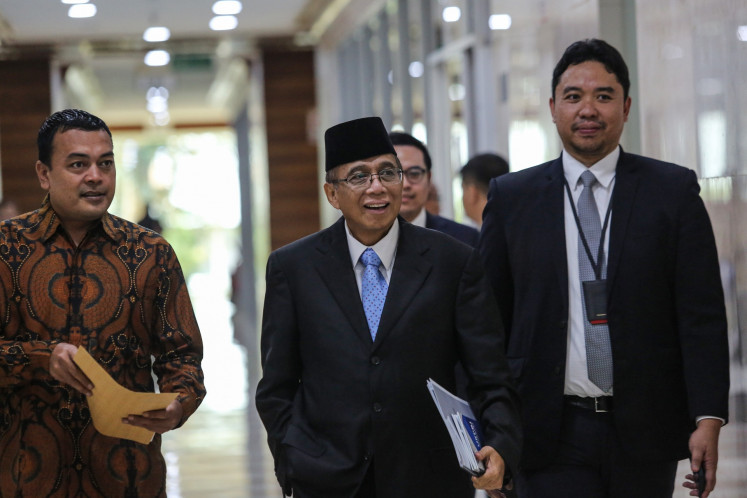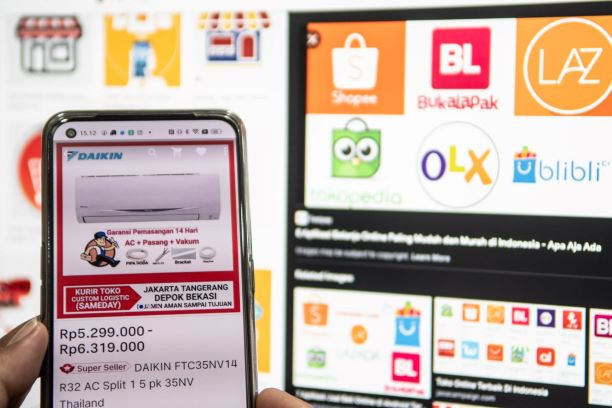Popular Reads
Top Results
Can't find what you're looking for?
View all search resultsPopular Reads
Top Results
Can't find what you're looking for?
View all search results'Teman Ahok': Connective action and the demise of political parties
Political parties could be seen as the first contributing variable to the slowing consolidation of democracy in this country since the Reform Era
Change text size
Gift Premium Articles
to Anyone
P
olitical parties could be seen as the first contributing variable to the slowing consolidation of democracy in this country since the Reform Era. Out of many discontents within the parties, parties themselves have failed to internalize and exemplify democratic values.
The two most damaging impediments are corruption by party elites and the ever-disrupting internal conflicts caused by escalating ideological disorientation and the rise of dynastic politics. These daily headlines, along with the immoral behavior of some elites, worsen the dire public trust in political parties. If there were substitutes during elections to political parties, the parties would have been long gone from the electoral map.
Yet party elites still stubbornly show hesitancy to appoint credible members to leadership positions. They are more comfortable with allocating strategic positions to their loyalists and family members regardless of their competence and will to perform the responsibility required of those positions. An alarming trend is seen in the recent issues regarding local elections.
The 2014 general elections in which parties suffered serious loss of votes were even a stronger sign of their low reputation among the electorate. Beyond deep distrust, the reason is the very essence of the parties' existence. Political parties have failed to adapt themselves to improving electoral dynamics.
The way citizens communicate today shows a very different pattern than a decade ago, as reflected in differences of organizing themselves independently in fairly powerful electoral movements. Thanks to the empowering new media, powerful connective actions parallel to parties are born. Elites cannot control the public minds through some trivial talks in the mainstream media anymore.
Amid a more intelligent electorate, political parties seem rather lost and weak. An institutionalized endeavor in shaping our genuine democracy through political parties is still far from happening. Furthermore, voters do not feel close affiliation with certain political parties.
Contrarily, credible individual figures attract more sympathy with displays of logical reasoning in their electoral engagement. The same logical reasoning has disappeared from the inner circle of party elites.
The candidacy of Joko 'Jokowi' Widodo as presidential candidate in 2014 did not even originate from his party, the Indonesian Democratic Party of Struggle (PDI-P), but rather from his collective nomination by a group of voluntary supporters who had campaigned his image based on his track record as one of the first game-changing electoral connective actions since the reform era.
'Connective action' can be seen as online networks-based voluntary movements organized by individual citizens to achieve certain goals for the public good. Social media platforms such as Twitter, Facebook, YouTube, Instagram and so on are used to voice public demands in interactively digitalized contents.
Several familiar examples of the movements can be mentioned in the context of electoral politics established in the 2014 elections, namely 'Vote Cerdas BDG' (Vote Cleverly for Bandung polls), 'Orang Baik, Bersih 2014' (Good and Clean People 2014) and 'Check Your Candidates'.
An attention-grabbing trend goes further in Jakarta today. A group of young citizens created a movement named 'Teman Ahok' (Friends of Ahok) to gather support from the public, especially Jakarta citizens, in nominating the current Governor, Basuki 'Ahok' Tjahaja Purnama, to contest the 2017 gubernatorial election as an independent candidate.
Their immediate mission is to collect copies of the identity cards of 1 million Jakarta citizens.
To compete in the next local election in Jakarta, Ahok should run as an independent candidate since he resigned from the Gerindra Party months ago, mainly because of political differences over the issue of the local election law. It would not be too difficult for him to join any political party ahead of the election; the parties may even approach him as a candidate of high electability.
But Ahok is not the type of person who easily surrenders to a compromising status quo; he would rather draw his own path to initiate a new style of doing politics and introduce change to serve the public with his best efforts.
Looking at Teman Ahok's creative campaign attracting ordinary citizens to participate voluntarily, a simple question arises: What will be the future relevance of political parties? If every election sees similar connective actions nation-wide, the very basic function of political parties then is irrelevant regardless of its existence.
In short, political parties should really totally reform themselves to survive.
As we wait to see their goodwill to reform, let's see what bottom-up civic engagement can do to maintain and increase the reform spirit.
We need to breed and nourish this sort of electoral connective action seriously to ensure that our efforts to improve democracy really benefit the people and are not twisted by the short-term interests of the elites.
__________________
The writer is a political communications researcher at the School of Communications, Atma Jaya Catholic University in Jakarta










